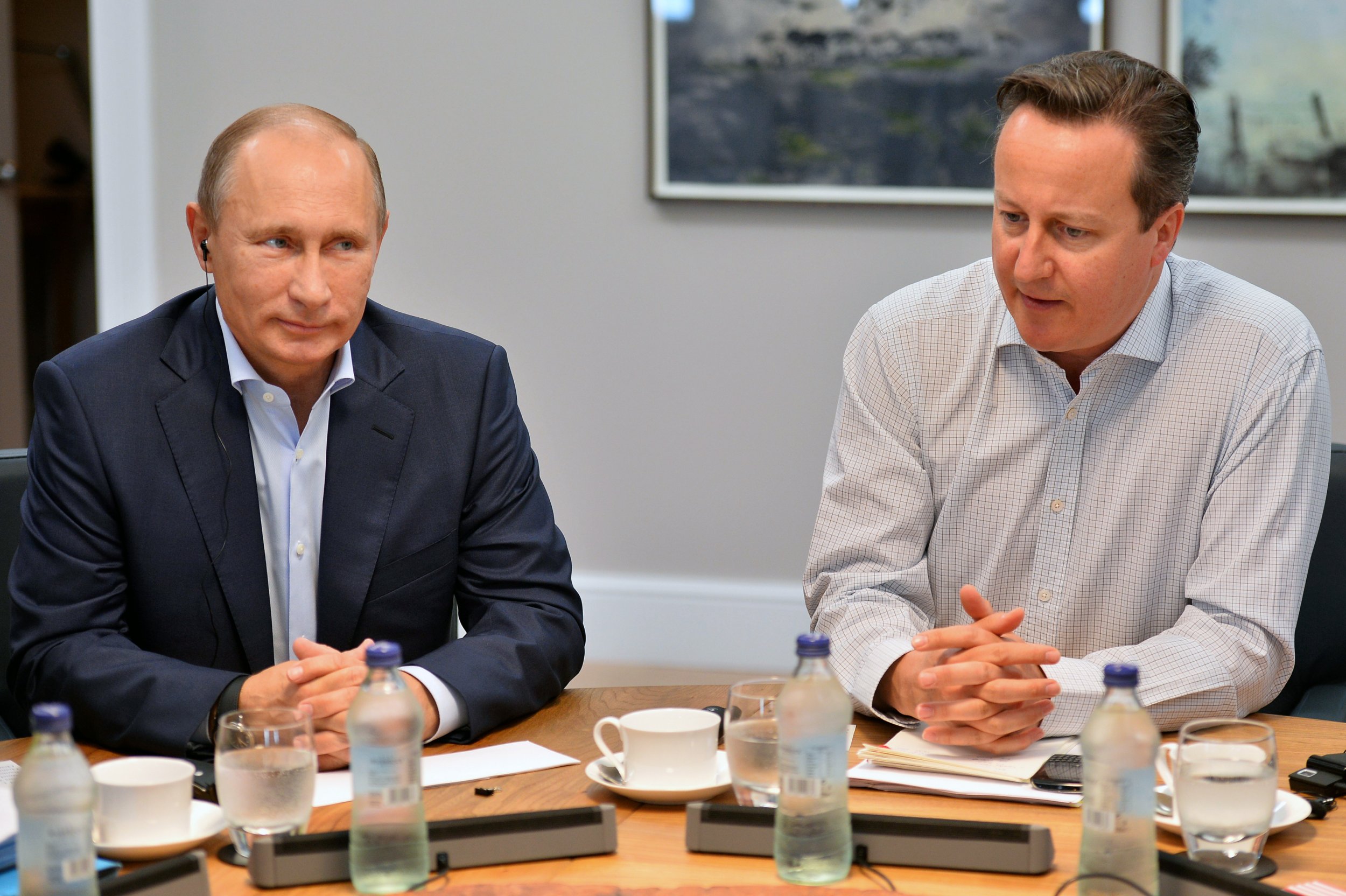
Russia is interested in "reanimating" relations with the U.K. once outgoing Prime Minister David Cameron resigns Wednesday, the Kremlin has announced.
Cameron and Putin did not enjoy a particularly close relationship during the former's time in office, with Putin recently accusing Cameron of behaving poorly when claiming Russia would benefit from leaving the EU. Cameron was also among the more resolute critics of Russia over the Ukraine crisis and intervention in Syria.
When asked how the Russian government felt Moscow-London relations would change following the appointment of Theresa May as Cameron's successor this week, Putin's spokesman admitted it was difficult to predict.
Speaking to state news agency Itar-Tass, Dmitry Peskov said the Kremlin believed that relations "are undeservedly and illogically in a state of torpor."
"Reanimating these relations, infusing them with a dynamicity would be a development that corresponds to the interests of both Moscow and London," Peskov added.
Speaking at his daily press conference, Peskov was also asked if he thought Russia could be governed by a woman one day, as May will become the U.K.'s second female prime minister.
"Of course, it is possible," he responded, according to state news agency RIA Novosti. "We must look at the legislation at hand and in our constitution it is specified who can become president, without any requirements on gender."
Last month, Valentina Matviyenko, speaker of Russia's upper house of parliament and the top ranked female state official, said Russian society was mentally ready for a female president. A survey by independent pollster the Levada Center showed in March that nearly half of Russians said they would not vote for a female leader and only 32 percent said they wanted to see a woman elected president in the next 15 years.
Uncommon Knowledge
Newsweek is committed to challenging conventional wisdom and finding connections in the search for common ground.
Newsweek is committed to challenging conventional wisdom and finding connections in the search for common ground.
About the writer
I am a Staff Writer for Newsweek's international desk. I report on current events in Russia, the former Soviet Union ... Read more
To read how Newsweek uses AI as a newsroom tool, Click here.





